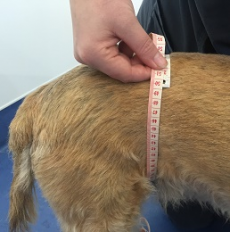What causes weight gain?
As with people, weight gain is usually the result of eating too many calories for our need especially when combined with insufficient exercise. However, in some cases there can be some contributing factors.
Age: Older pets are less active so managing arthritis can help.
Breed: Some breeds are genetically more prone to gain weight. These include labradors, cocker spaniels and King Charles spaniels.
Neutering and spaying: Studies have shown that neutered pets have a lower basic metabolism rate, and they require less energy.
Medical problem: Occasionaly weight gain is associated with hormonal disease.










